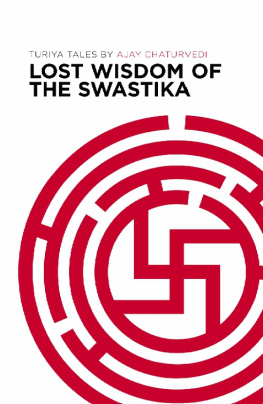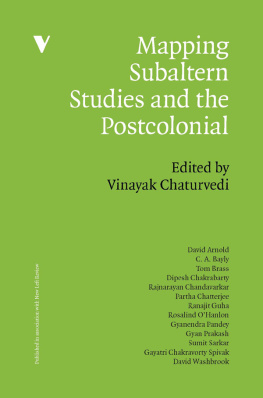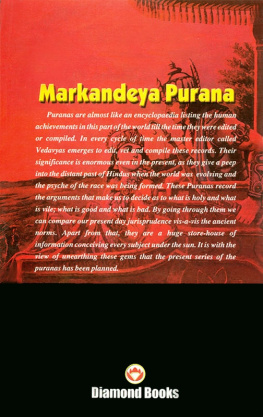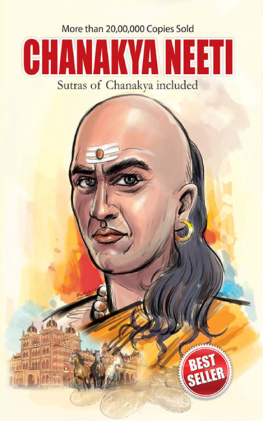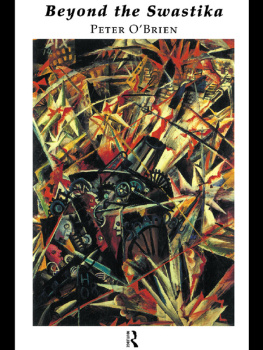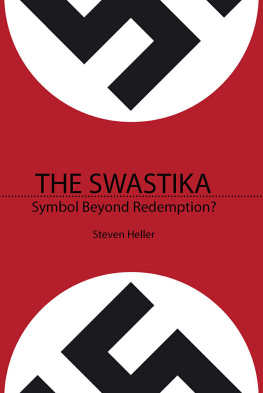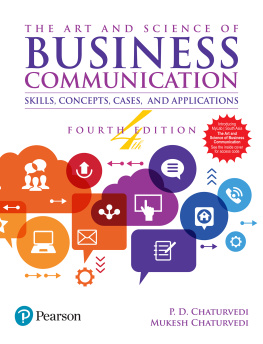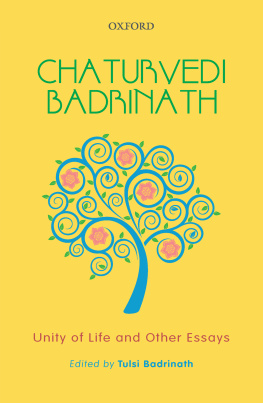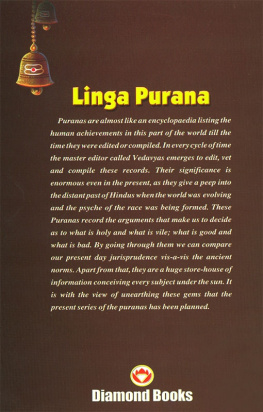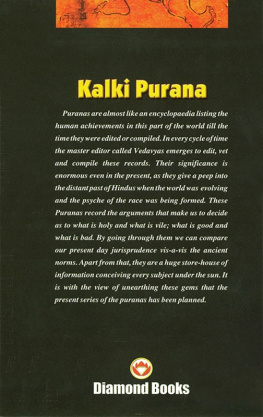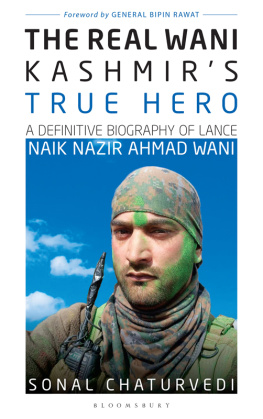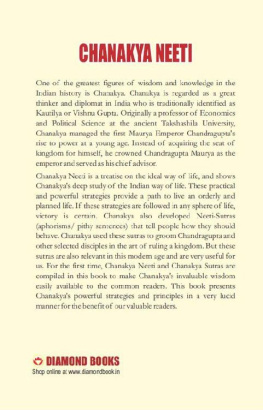Contents
Maharaj ji
To whom Im eternally indebted for the timeless wisdom that he passed on to me!
My Father,
Late Shri Ravindra Kumar Chaturvedi
For being a loving father, for giving me the best despite hardships. Most importantly, for teaching me the value of humility and kindness!
TURIYA TALES LOST WISDOM OF THE SWASTIKA
Copyright Ajay Chaturvedi, 2015
Printed in 2015
Published by
Bennett, Coleman & Co. Ltd.,
7, Bahadur Shah Zafar Marg,
New Delhi-110002
All rights reserved. No part of this work may be reproduced or used in any form or by any means (graphic, electronic, mechanical, photocopying, recording, taping, web distribution, information storage and retrieval systems or otherwise) without prior written permission of the publisher.
Disclaimer
This book is a work of fiction, based on a true account.
Due care and diligence has been taken while printing and editing the book. The Publisher does not hold any responsibility for any mistake that may have crept in inadvertently. The Publisher shall be free from any liability for damages and losses of any nature arising from or related to the content of the Book.
Published, Marketed & Distributed by
Times Group Books
(A division of Bennett, Coleman & Co. Ltd.)
Times Annexe, 9-10, Bahadur Shah Zafar Marg, New Delhi-110002
Cover design: Rachna Dhall
Back cover picture: Ajay Chaturvedi, November 2008
ISBN: 978-93-84038-62-5
Acknowledgements
My mother Mrs Uma Chaturvedi, sister Noopur and brother Akshay, for their unconditional love and support in all my endeavors and for being the first victims of my writing. My son Arav, who even though is not with me, continues to inspire the power of child-like curiosity in me.
Amit Chaubey, my cousin and co-conspirator, for being the first real critic of the manuscript.
Gunjan Veda, a friend and founder of IndiaReads.com, for being my first literary critic.
Ashish Virmani, a friend and a lawyer, for helping me maneuver through the publishing contract.
Swagat Yadav, a brother from another mother, a fellow BITSian, for being a pillar of support in all the art and creative work for this book.
Mugdha Kalra, for providing some very positive, encouraging, yet critical feedback to communicate the message in a simpler language.
Sanchi Bhat, a friend and a former intern at HarVa, for providing insights into making the text accessible and palatable for the youth.
Rohit Mohan and Monce Abraham, partners in crime, for providing valuable insights and last-minute proofing.
The team at Times Group Books, for believing in me, a first-time author. Madhulita, Monali and Subhasish (Dada), for being incredibly patient with me.
Jacum Khan, a friend from Mewat, Haryana, for helping me out with the character of Zian.
Masrat Khan, a beautiful friend from Kashmir, for providing timely and critical feedback on the nuances of religions.
Shalini Singh, among other friends, for being persistent in motivating me to write this book.
Most importantly, a fellow THNK'er and a friend from Amsterdam, Rachna Dhall, the Designer. Many thanks for going through the pangs, for sharing your passion for the lost wisdom of the Swastika, and for the wonderful cover design!
Deepest gratitude to all, whom I have not been able to mention due to paucity of space. Forever indebted!
A Note from the Author
During my initial days in the US, I was warned over a Swastika on my T-shirt. A symbol so sacred in the country I came from, my Janmabhoomi , attracted such disgust in the country of my work, my karmabhoomi. It was bewildering. Little did I realize then, that Id write a book on it, someday! A lot of water has flowed under the bridge, since. I was disillusioned by the unilateral focus on profitability in the corporate world; social responsibility was just an afterthought. A sequence of events starting from the dot-com bust in early 2000s to the Great Recession of 2008, along with setbacks in personal life, led me to the Himalayas.
The Himalayas and Maharaj ji taught me a lot. The more one looks around, the more one realizes that the majority of the conflicts around the world, be they individual or collective, embody the tussle between knowledge and wisdom. We would experience eternal bliss if only we could find ourselves; if our internal awareness overcame the constant pressure to forcefully adjust to our manufactured environments.
Turiya is the fourth state of consciousness beyond waking, dreaming and dreamless sleep. The Swastika symbolizes that four-dimensional space that can be experienced. The reason I wrote this book as a fictional account, is to make it a light reading and spark curiosity in people. Unless we are inquisitive, we might lose the wisdom entirely.
At this important juncture of social, economic and political Indian and world history, Turiya Tales will, I believe, help us to make sense of our world understand it and possibly even build on it. The wisdom of the Swastika is an immensely powerful tool that has the potential to change lives. I know it changed mine! And so, here, I share it with you in the hope that together we can deploy it to make our world more peaceful, more habitable and more safe.
Twenty-five percent of my proceeds from this book will go to skill development of rural women & youth, and 25 percent will go toward rehabilitation of Kedarnath & Kashmir flood victims.
www.LostWisdomOfTheSwastika.org
Glossary
Aarti: a devotional ceremony
Agni: fire
Ahankaar: the ego
Ajna Chakra: pineal gland or the Third Eye
Akash Tattva: sky element
Akash: ether
Akharas: laboratories of ancient Indian seers or Indian scientists who were trained and nurtured on the concepts of the Natural Law, and imparted their wisdom to sadhaks
Allah ki den: gift of God
Arya: noble/nobleman
Asana: the postures of yoga
Ashram: larger campus that contained the gurukul
Ashtavakrasana: a yoga posture or asana
Asthi Visarjan: offering of human bone char to the sacred river, after cremation
Attha Kalapas: smallest sub-atomic particle made of the four elements of Vayu, Jal, Agni and Prithvi and their respective nature/characteristics
Attha: eight
Bhagwan ka roop: gift of God
Bhagwun: loving name for the 200-year-old master, given by the students. Means God or guru
Bhaiya: big brother
Bharat: ancient India. Historically, this was the name for India
Bharatvasis : residents of India, or Indians
Bhikshus: one asking for alms
Bhratra Dharma: ones duty toward his brother
Buddhi: the intellect
Chapati: Indian bread
Chillam: a conical-shaped, traditional clay pipe that is held upright when smoking
Chitta: will
Choti: tuft of hair
Darshan: holy glimpse of the deity/shrine
Devas: subtle and higher beings, gods
Dharma: the truth or law that affects the entire universe, in ancient Bharatvarsh/Indias ancient historical and mythological scriptures; ones true nature; duty as assigned by society and/or religious texts to ones social standing
Dharna: concentration that involves teaching the mind to focus on one point or image
Dhoti: an Indian garment, worn by boys and men, waist down, wrapped around the lower half of the body; it is a rectangular piece of cloth about 4 meters in length and one meter in width
Dhyan: meditation; uninterrupted meditation without an object

